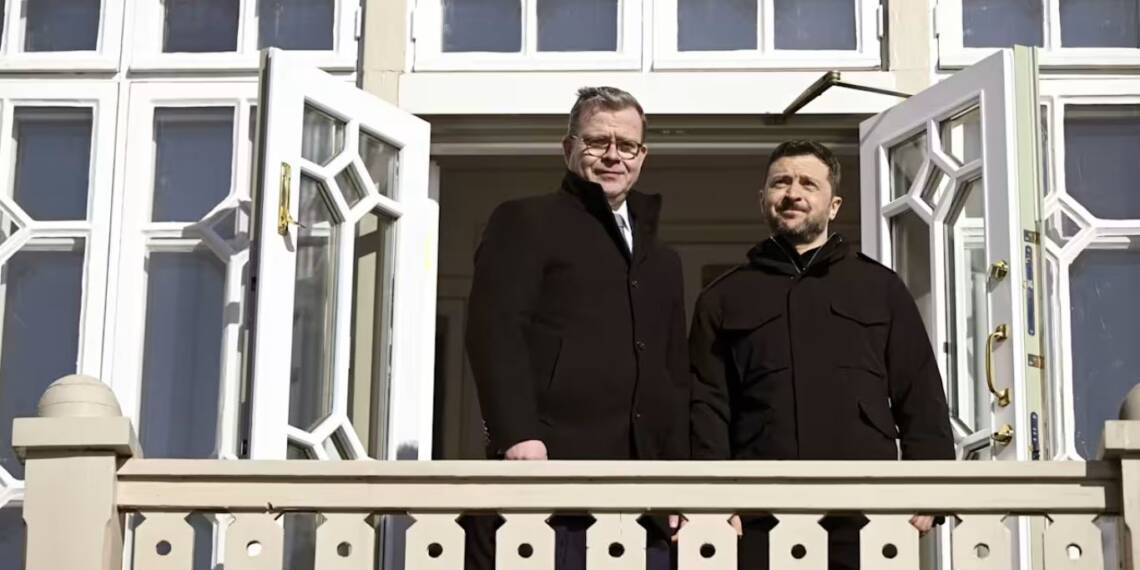The European Union is having a moment—of panic, that is. Washington D.C.’s recently announced Trumpian measures have sent shockwaves through Brussels, and the realization has dawned: Europe cannot fight Russia alone. No matter how much the EU preaches “strategic autonomy,” deep down, they know who has been footing the security bill all these years. Hint: It wasn’t them.
And now, the tremors are reaching the Nordics. NATO’s newest member, Finland, is preparing to ditch the 1997 Ottawa Convention, which bans the use of anti-personnel landmines. Why? Because reality just smacked Europe in the face.
Big Move for Finland
Finland’s Prime Minister Petteri Orpo made it clear: there is no immediate military threat, but Russia is a long-term menace. So, Helsinki is taking matters into its own hands. By leaving the treaty, Finland— which happens to share NATO’s longest border with Russia—can begin stockpiling landmines once again. These are the same landmines that Helsinki was forced to destroy after 2012 to appease EU “peace efforts.”
The Finns aren’t stopping there. Defense spending is set to rise from 2.41% of GDP in 2024 to 3% by 2029, with an additional 3 billion euros ($3.24 billion) allocated to military efforts. Even Finland’s usually restrained President Alexander Stubb took to X (formerly Twitter) to underline what this really means: Europe needs to take responsibility for its own defense.
Poland and the Baltics
Finland isn’t alone. Last month, Poland and the Baltic states—Estonia, Latvia, and Lithuania—announced their withdrawal from the Ottawa Convention. The reason? Russia. These countries have been sounding the alarm bells for years, warning the EU about the Russian threat. They’ve been brushed off as paranoid, but now, with Trump signaling a shift in U.S. commitments to Ukraine, they’re scrambling to prepare for the worst.
It turns out, when the big brother across the Atlantic starts questioning why he’s paying for European security, European nations suddenly rediscover their own military instincts. Go figure.
The EU’s Strategic Fantasyland
This whole situation has laid bare the EU’s greatest illusion: that it could somehow rely on diplomacy, treaties, and “shared values” to protect itself. Brussels spent decades obsessing over peace treaties and arms control agreements, convinced that the world operates on good intentions. Meanwhile, Russia never even signed the Ottawa Convention in the first place.
While Finland was being lectured about “moral leadership” and forced to destroy over a million landmines, Moscow was busy modernizing its military, perfecting hybrid warfare, and launching a full-scale invasion of Ukraine. That’s the problem with treaties—only the well-behaved countries follow them.
Trump’s Shadow Looms Over Europe
The backdrop to all this is Donald Trump’s unrelenting push to “end” the war in Ukraine. His statements have rattled European allies, and for good reason. The ex-president-turned-2024-frontrunner has made it clear that he won’t allow the U.S. to bankroll endless European wars.
Poland and the Baltics get it. Finland gets it. The EU? Not so much. Instead of waking up to reality, Brussels still clings to the fantasy that it can “pressure” Washington into maintaining the status quo. News flash: the world is moving on.
Finland’s decision to quit the Ottawa Convention is more than just a security measure—it’s a harsh wake-up call for Europe. The EU has spent too long outsourcing its security while virtue-signaling about peace. Now, as the U.S. rethinks its role in Europe, the real question is: will the EU step up, or will it crumble under its own illusions?
One thing is certain: Trump’s latest move has exposed the EU and the Baltics the most. They know it, and now, so does the rest of the world.







